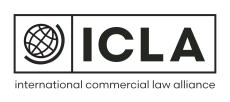Many New Zealand employers have spent valuable time and money developing sophisticated HR and immigration systems, seeing it as the right thing to do. But from time to time, even the best-laid plans can go awry. Issues of non-compliance inevitably arise, in situations where the employer has invested in developing systems and processes for managing compliance, these issues are often due to human error.
Maybe, for example, an employee has gone onto an interim visa while their current visa is assessed, and the employer realises a little too late that the interim visa does not have work conditions, meaning they are not permitted to work until the new visa is issued. Upon realising, the employer acts quickly to stand the employee down until they receive the correct visa.
Under the Immigration Instructions, an Accredited Employer must notify INZ within 10 working days of any change to its compliance with the Instructions. Going back to our example, employing a person who does not have the right to work breaches the Instructions. INZ have clarified to Lane Neave recently that disclosure is required even in these circumstances of minor breach. Therefore, our diligent company in question must disclose this temporary error within 10 working days of it being identified.
There is the potential for this to create huge issues for many New Zealand employers. However, it will create significant issues for larger employers due both to the sophistication of their systems and the number of workers that they employ. What will happen when our company goes to renew its accreditation, and INZ has a note on file (following a voluntary disclosure in line with the requirement to notify) that one of its employees (out of a staff of say, 1,000) accidentally worked for a week without the correct conditions? Well, we don’t know yet, and that is worrying for our clients.
We are very concerned that these disclosure obligations unfairly penalise the diligent over the disorganised/blissfully unaware employer. The looming risk is that those who are informed of their obligations and have sophisticated enough systems to learn of non-compliance and then act in good faith in making a disclosure may face issues at the time of renewal of accreditation, whereas other employers who have smaller workforces and/or less sophisticated systems (and therefore do not come to know of breaches) get a “clear run”. While we are sure that this must not have been INZ’s intention, the effect may be that ignorance of the law becomes a ticket to easy accreditation renewals and a convenient excuse if it’s identified by INZ during an accreditation (or other) process.
INZ has indicated that it will likely take a “pragmatic approach” and non-serious breaches that have been proactively remedied would not necessarily prevent an employer from renewing their accreditation.
However, we would like to see some concrete policy in order to clear the murky waters for diligent employers. At this time, there is a disincentive to be diligent and this needs to be remedied as this clearly could not have been an intention of the new compulsory accreditation regime.
We are in discussions with INZ to obtain further clarification on this issue. We look forward to being able to share these updates with our clients. If you are concerned about the disclosure obligations that affect your company, reach out to the experts!



